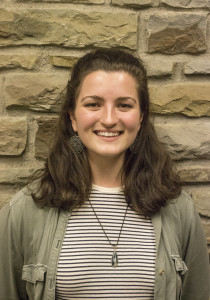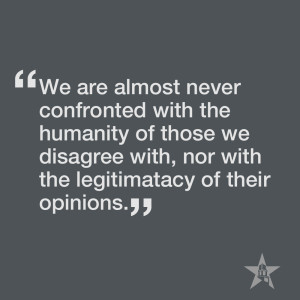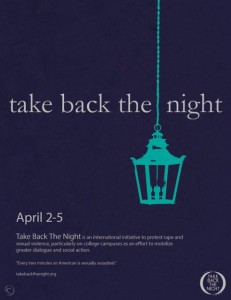Since the election, the media has attracted new levels of criticism. Blame for the “surprise” election results has fallen on faulty polls and biased reporting from a highly politicized media. However, while the problems which have been highlighted by the media’s failure to report without prejudice are valid, it is important to examine the role which consumers have played in the degradation of the media.

According to the Pew Research Center, forty-four percent of adult Americans rely solely on Facebook for their daily news. That means that almost half of Americans get all their news from memes, two-minute videos, and even websites like The Onion that are meant to be read satirically, but are often mistaken for fact. Our patience for solid reporting has dwindled as we become more and more willing to accept BuzzFeed listicles as fact or videos of the Clintons playing with balloons as a character reference. However, the blame for this issue cannot completely fall on the media. We must accept at least partial responsibility for this shift. The media reports on what people want to hear: it falls to the public to determine what kind of quality we look for in the news.
Additionally, exposure to a variety of issues is becoming increasingly rare, as news stories are now catered to the individual. Our Facebook newsfeeds, for example, are filled with news items the website’s algorithms have determined we are interested in. Furthermore, what’s “trending” on Facebook is filtered by a team of “news curators” who, according to a recent article published in Gizmodo, were routinely encouraged to suppress certain news items and promote others. In a given situation, our biases are easily confirmed because we are presented with information that either sooths our egos or gives us a sense of righteous indignation, depending on the situation. We are rarely confronted with issues we disagree with, and if we are, we can hide safely behind our computer screens as we lob insults and “facts” at our opponents in an attempt to educate or embarrass them. We are almost never confronted with the humanity of those we disagree with, nor with the legitimacy of their opinions.
 In this sense, we have all missed the mark terribly. Both the media and its consumers have allowed sensationalism, pettiness, and backbiting to become the norm in our daily news, and we have forgotten how to disagree civilly. Under such circumstances, it’s no wonder we have witnessed such a disgraceful campaign season. Each side bought into strawman arguments about the other simply because their newsfeeds told them they were true. There was little-to-no fact checking involved before hasty judgements were made. Trump’s supporters are not all homophobic racists, just as not all Clinton supporters are abortion-touting socialists.
In this sense, we have all missed the mark terribly. Both the media and its consumers have allowed sensationalism, pettiness, and backbiting to become the norm in our daily news, and we have forgotten how to disagree civilly. Under such circumstances, it’s no wonder we have witnessed such a disgraceful campaign season. Each side bought into strawman arguments about the other simply because their newsfeeds told them they were true. There was little-to-no fact checking involved before hasty judgements were made. Trump’s supporters are not all homophobic racists, just as not all Clinton supporters are abortion-touting socialists.
My hope, moving forward, is to see both the media and our society as a whole moving toward real curiosity and openness. To do this, we must actually interact with each other; not simply through social media, but through sincere conversations that help us understand our similarities along with our differences. We can listen to each other’s fears, thoughts, and hopes whether or not we come to the same conclusions. We have been a polarized nation for too long, and the effects are taking an obvious toll. It is imperative that we listen to each other, deeply and without prejudice, in order for us to live peacefully with one another.
Rachel is a senior writing major.

